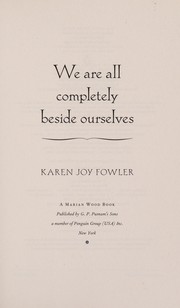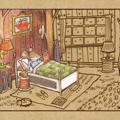We are all completely beside ourselves
4 stars
We are all completely beside ourselves tells the story of a peculiar family and their troubles seen through the eyes of the little sister Rosemary, telling us about her family, her brother that went away and her sister that suddenly disappeared, breaking the family in pieces.
Through her eyes and memories we go around time in a messy way, just like we remember ourselves. Bit by bit we uncover an unique family and every chapter brings another surprise. While at first the family looks quite dysfunctional, you begin to realise that the way they act and behave might be quite understandable.
I loved reading this book, every single person in it is quite unique in its own way and lovable.


